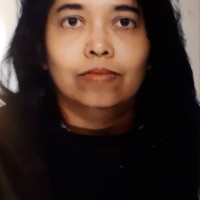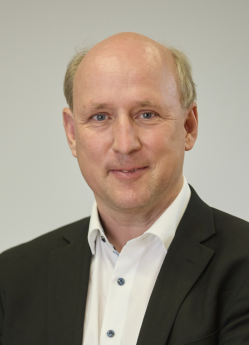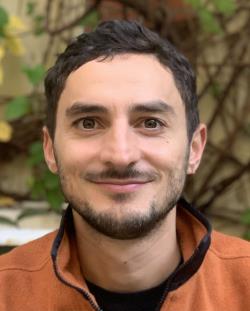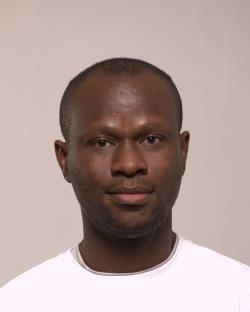AR, VR and the Metaverse. An opportunity for enhancing eHealth Technologies
IGF Dynamic Coalition on Data Driven Health Technologies (DC-DDHT)
Session 285
This session will explore the transformative potential of Augmented Reality (AR), Virtual Reality (VR), and the Metaverse within the eHealth sector. As digital landscapes evolve, these technologies offer unprecedented opportunities to enhance healthcare delivery, patient education, and medical training. We will discuss successful projects that utilize AR and VR to improve diagnostic accuracy, surgical precision, and patient outcomes, showcasing a future where digital and physical health realms intersect seamlessly.
The advent of the Metaverse presents a new frontier for eHealth, promising to revolutionize patient engagement and care processes through immersive therapeutic environments and interactive patient care systems. This session aims to articulate a clear vision for the integration of these technologies in the WSIS framework beyond 2015, moving towards 2025, focusing on scalability, accessibility, and security as foundational pillars for advancing global health initiatives.
Session format
The session will commence with concise presentations from members of the IGF Dynamic Coalition on Data Driven Health Technologies. These talks will introduce us to the various applications, opportunities, and challenges of integrating these technologies into our everyday lives. Following the presentations, we will transition into a comprehensive discussion, engaging both onsite and online participants. Each speaker will be allotted two minutes for their intervention, ensuring a dynamic and diverse exchange of ideas.
Reading Material
The Pew Research Center - The Metaverse in 2040 and Visions of the Internet in 2035.
Forbes - How virtual reality is benefitting seniors.
EU initiative and strategy on web 4.0 and the virtual worlds.

Amali is the founder and coordinator of IGF DC-DDHT. She has over 25 years of experience with international internet governance and WSIS processes. She was President of an NGO ISP and Director of the Freedom of Information and Privacy Association of BC Canada. She also initiated the North American caucus for WSIS in phase 1. She is also on the Euralo Individuals Association board associated with ICANN. She is an economist and professional accountant with a background in IT.
.jpg?maxwidth=250)
Dr. João Rocha Gomes is a medical doctor and health economist, having graduated from the University of Porto (Portugal). After medical experiences in Porto, Warsaw and London, he pivoted fully into the digital health space due to his deep-rooted passion for leveraging technology in healthcare. He is also actively engaged in health policy and scientific research, lecturing medical students on the topics of Data and Digital Health. His vision extends to democratizing healthcare access worldwide, utilizing artificial intelligence as a key tool in this pursuit.

Jörn Erbguth is an independent consultant specialising in sustainable innovation and data protection. He was previously CTO of Swisslex AG, the leading provider of online legal information in Switzerland. He has a background in law and computer science. He is affiliated with the University of Geneva, where he completed his PhD on long-term revocable digital credentials using blockchain verification, with a special focus on data protection regulations at the University of Geneva. Jörn is involved in blockchain standardisation at the ITU. He is committed to promoting sustainable innovation with a focus on human rights. He is a board member of Geneva Macro Labs, Entscheidsuche.ch and EDV-Gerichtstag, and a member of the EuroDig Programme Committee and the Senate of the academic blockchain consortium 'bloxberg'.

Carol McDonald is the founder of Gneiss Concept, a consultancy specializing in the mass customization of footwear and apparel manufacturing. With over 30 years of experience in manufacturing and sustaining engineering, she leads the IEEE 3D Body Processing Industry Connections and Standards groups, focusing on innovative 3D body processing technologies. Carol's work in these roles is pivotal in shaping the future of manufacturing with advanced digital technologies.

Amado Espinosa MD, MCS, MBA, Phd is a medical informatician dedicated to research, development and implementation of IT systems and their applications for improving the quality and performance of healthcare provider organizations in Latin America. He is Founder and CEO of Medisist, amongst other national and international achievements. He is a member of UN IGF DC DDHT and is a past member of the UN IGF MAG Multi-stakeholder Advisory Group.

Rodrigo is a Chilean MSc health scientist and a BSc medical technologist with experience in clinical and laboratory diagnostics, digital health solutions, and healthcare research. His latest works include the integration of digital health translators into German healthcare settings and the introduction of virtual reality devices as training tools for nurses in Germany.

As a member of the Dynamic Coalition on Data, Health and Technology, Yao is an expert in Internet governance, an advocate of youth in policy-making and a climate change enthusiast. His research interests include entrepreneurship and skills-based education, the role of technology in sustainability and public health, and he is involved in EU-funded multinational projects. In addition, Mr. Yao actively promotes citizen participation in IGF, digital rights, digital identity and climate change initiatives.
-
 C1. The role of governments and all stakeholders in the promotion of ICTs for development
C1. The role of governments and all stakeholders in the promotion of ICTs for development
-
 C2. Information and communication infrastructure
C2. Information and communication infrastructure
-
 C3. Access to information and knowledge
C3. Access to information and knowledge
-
 C4. Capacity building
C4. Capacity building
-
 C5. Building confidence and security in use of ICTs
C5. Building confidence and security in use of ICTs
-
 C6. Enabling environment
C6. Enabling environment
-
 C7. ICT applications: benefits in all aspects of life — E-government
C7. ICT applications: benefits in all aspects of life — E-government
-
 C7. ICT applications: benefits in all aspects of life — E-business
C7. ICT applications: benefits in all aspects of life — E-business
-
 C7. ICT applications: benefits in all aspects of life — E-learning
C7. ICT applications: benefits in all aspects of life — E-learning
-
 C7. ICT applications: benefits in all aspects of life — E-health
C7. ICT applications: benefits in all aspects of life — E-health
-
 C7. ICT applications: benefits in all aspects of life — E-employment
C7. ICT applications: benefits in all aspects of life — E-employment
-
 C7. ICT applications: benefits in all aspects of life — E-environment
C7. ICT applications: benefits in all aspects of life — E-environment
-
 C7. ICT applications: benefits in all aspects of life — E-agriculture
C7. ICT applications: benefits in all aspects of life — E-agriculture
-
 C7. ICT applications: benefits in all aspects of life — E-science
C7. ICT applications: benefits in all aspects of life — E-science
-
 C8. Cultural diversity and identity, linguistic diversity and local content
C8. Cultural diversity and identity, linguistic diversity and local content
-
 C9. Media
C9. Media
-
 C10. Ethical dimensions of the Information Society
C10. Ethical dimensions of the Information Society
-
 C11. International and regional cooperation
C11. International and regional cooperation
This session directly supports the WSIS Action Lines by promoting the use of ICTs to enhance public health outcomes. The integration of AR, VR, and Metaverse technologies into health services underscores the critical role of innovative ICT applications in improving access to health information and services, thereby fostering a conducive environment for e-health advancements.
-
 Goal 3: Ensure healthy lives and promote well-being for all
Goal 3: Ensure healthy lives and promote well-being for all
-
 Goal 4: Ensure inclusive and equitable quality education and promote lifelong learning opportunities for all
Goal 4: Ensure inclusive and equitable quality education and promote lifelong learning opportunities for all
-
 Goal 8: Promote inclusive and sustainable economic growth, employment and decent work for all
Goal 8: Promote inclusive and sustainable economic growth, employment and decent work for all
-
 Goal 9: Build resilient infrastructure, promote sustainable industrialization and foster innovation
Goal 9: Build resilient infrastructure, promote sustainable industrialization and foster innovation
-
 Goal 10: Reduce inequality within and among countries
Goal 10: Reduce inequality within and among countries
-
 Goal 17: Revitalize the global partnership for sustainable development
Goal 17: Revitalize the global partnership for sustainable development
The use of AR, VR, and the Metaverse in healthcare directly contributes to SDG 3 by innovating and improving the quality, safety, and delivery of healthcare services, thus ensuring healthy lives and promoting well-being at all ages. These technologies build on SDG 9 by fostering innovation and building resilient infrastructure, crucial for sustainable industrialization of healthcare technologies.
https://intgovforum.org/en/content/dynamic-coalition-on-data-driven-health-technologies-dc-ddht